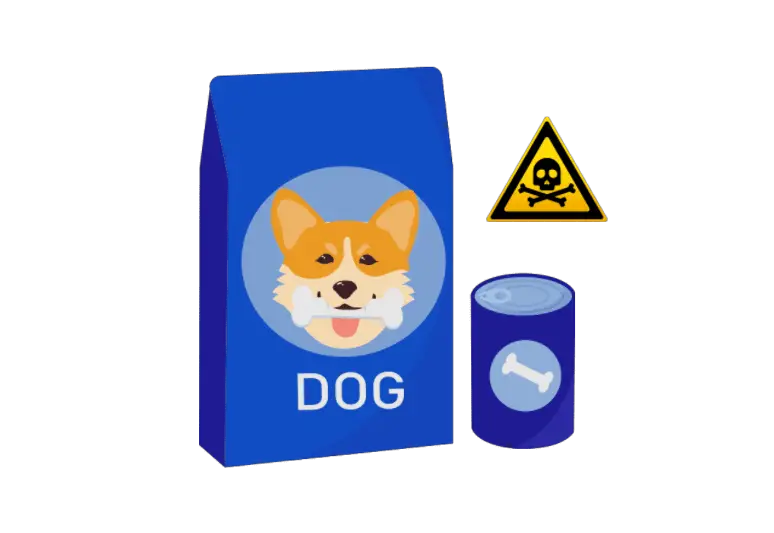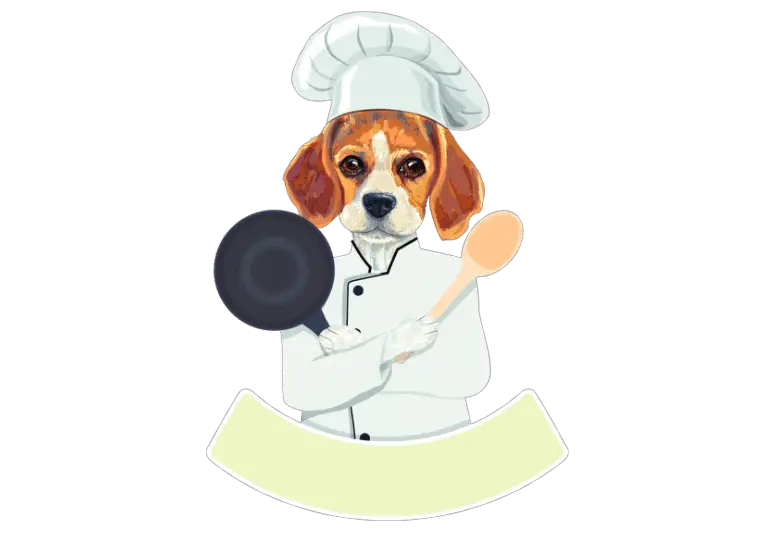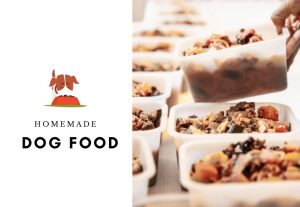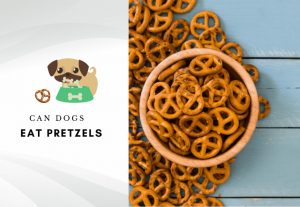What are dogs not allowed to eat? If you’re wondering what your dog can and can’t eat, this list is here to help. Find out the top 26 toxic foods for dogs.

Most dog parents share plates with their beloved dogs even though they know that they should be avoided.
Providing table scraps to your canine friend is always tempting, but some of these foods may prove unhealthy for them. Moreover, table scrap feeding is a bad habit for dogs.
In addition, according to a rough estimate, more than 17 thousand pet emergencies are due to human food consumption every year.
Is it just a number?
No, it also brings about the situation of a life emergency for pets and heavy cost to the pet parents. Likewise, the possibility of certain systemic complications also increases.
For instance, the most important are gastrointestinal problems, including stomach bloat, food bloat, intestinal obstructions, and overweighing.
Furthermore, other secondary conditions like diabetes and obesity impose another level of complication on your dog’s life.
It is a matter of concern to worry about your dog’s feeding to make him healthy and sturdy.
This article will let you know about human foods that are dangerous and toxic for dogs.
As always, read on to learn more about what dogs are not allowed to eat.
List of 26 Dangerous and Toxic Foods for Dogs

Toxic foods for dogs that should be avoided are described below. You just have to make sure to keep away your canine from these foods and ingredients.
Let’s go for it.
1. Chocolate
The presence of methylxanthines in chocolates and caffeine imparts harmful effects to dogs if they consume them. Likewise, a similar ingredient is present in cacao seeds, and sodas according to ASPCA. Of course, not all chocolates contain such a harmful chemical, but you should avoid them for your dogs.
Moreover, it is believed that dark chocolate is more harmful than white. The primary reason behind this fact is the higher concentration of methylxanthines in dark chocolates. So, you should be careful and avoid offering them to your dog for the sake of your dog’s health.
Complications and Side Effects of Chocolate for Dogs
- Diarrhea
- Vomiting
- Excessive urination
- Increased thirst
- Hyperactivity
- The abnormal rhythm of the heart
- Tremors
- Seizures
- Increased panting
2. Alcohol
Alcohol is among the toxic foods for dogs that may cause severe loss of nervous coordination. According to the ASPCA, “You should avoid offering any alcohol to your dog under any circumstances.” All the beverages and alcohol products are fatal for your dogs. In addition, alcoholic foods are not among the foods that dogs are allowed to eat.
Moreover, the basic reason for alcohol prohibition in dogs is its side effects on dogs’ nervous and digestive systems. Likewise, it causes serious digestive tract complications with liver damage. Some of these complications are:
Complications and Side Effects of Alcohol for Dogs
- Diarrhea
- Vomiting
- Lack of coordination
- Depression of the central nervous system
- Ataxia (incoordination)
- Dyspnea (short breathing)
- Tremors
- Imbalanced blood acidity
- Coma
3. Apple Seeds
No doubt, apples are safe for the consumption of dogs, and veterinarians consider them a healthy treat full of minerals and fibre. However, apple seeds are notorious for their toxicity causing ability in dogs on significant consumption. The major reason is the presence of cyanide in them which is a poison and causes severe toxicity in dogs.
Cyanide is present in apple seed in a minute quantity that becomes available when chewed or broken down in the dog’s stomach. The major complication of cyanide is hypoxia. The symptoms and complications of which are:
Complications and Side Effects of Apple Seeds for Dogs
- Dilated-pupil
- Reddish mucous membranes
- Difficulty breathing
- Shock
- Excessive panting
4. Cherries
Cherries also contain cyanide except for the fleshy part. Therefore, be careful if you are serving cherries as a treat to your dog. The cyanide present in the pit is just like toxin foods for dogs. It can cause severe systemic complications, which may appear within a few hours.
The small amount of cyanide is not as damaging as the higher amount in a regular pattern. Moreover, cyanide poisoning directly affects dogs’ digestive systems, inducing severe vomiting and other respiratory problems.
Complications and Side Effects of Cherries for Dogs
- Dizziness
- Rapid heart rate
- Restlessness
- Weakness
- Nausea
- Vomiting
- Difficult breathing
- And excessive panting
5. Citrus
The seeds, stems, peels, and leaves of the citrus plant contain varying amounts of essential oils and citric acid. When ingested in large quantities, citrus plants may inflict several systemic disorders, including loss of coordination and depression of the central nervous system.
Avoid exposure to these hazardous threats that may lead to health problems.
Complications and Side Effects of Citrus for Dogs
- Depression
- Diarrhea
- Excessive drooling
- Cold limbs
- Liver failure
- Lethargy
- Lack of coordination
- CNS depression
- Collapse
6. Raisin and Grapes
Raisins, grapes, currants, and sultanas are all among the foods toxic for dogs. Even a small amount of these fruits may cause serious kidney problems in your furry fellows. There is no dose-dependent relationship for these foods as a minute exposure may put your dog’s life in danger.
Moreover, all types of grapes and raisins are potential toxins for your dog; no matter if they are organic, traditionally grown or seedless, or seeded. However, the exact mechanism by which they cause toxicity in dogs is still underway.
All types of raisins and grapes products like paste, juice, cereal bars, and bread may prove toxic for your furry fellow.
Complications and Side Effects of Raisins and Grapes for Dogs
- Vomiting
- Diarrhea
- Anorexia
- Abdominal pain
- Acute renal failure
- Discomfort
- Lethargy
7. Avocado
Avocado also falls in the category of foods toxic to dogs due to the presence of persin in it. Persin is a type of toxin which can bring about several health complications in your lovely dog. Sometimes, due to excessive consumption of avocado, the animal may collapse.
Moreover, the concentration of persin inside the flesh is not significant compared to the rest of the avocado plant. However, this slight concentration inside the flesh is enough to cause toxicity in dogs.
Complications and Side Effects of Avocado for Dogs
- Vomiting
- Diarrhea
- Myocardial damage
- Gastrointestinal disturbance
- Pancreatitis
- Overweighing
8. Onions
Generally, people don’t consider onions as food dangerous to dogs, but the fact is quite contrary. A compound named N-propyl disulfide in onions is the major reason for its feeding prohibition in dogs. This is because it brings about the destruction of red blood cells in the dog’s body, leading to anemia.
Moreover, oxidative damage to the cell is also evident, manifested by attracting oxygen molecules towards it, leaving behind cells deprived of oxygen. Flesh, leaves, processed powders, juice, and other related onion products are all toxic to dogs.
Complications and Side Effects of Onions for Dogs
- Lethargy
- Anemia
- Loss of appetite
- Pale gums
- Reddish urine
- Mouth irritation
- Elevated heart rate
- Vomiting
- Diarrhea
9. Garlic
Just like onions, leeks, and chives, garlic also belongs to the allium family. That’s why it is potentially poisonous to your dogs. Some dogs are more sensitive to garlic poisoning because it is almost five times more potent than onions. Japanese breeds like Shiba Inu and Akita are more prone to get severe diseases.
Moreover, it is also evident that the symptoms and complications from garlic and onion poisoning are delayed. It means if you are suspecting that your dog has consumed garlic, try to closely observe him for a few days to check for the severity of the poisoning and contact a veterinarian.
Complications and Side Effects of Garlic for Dogs
- Abdominal cramping
- Anemia
- Anorexia
- Blood in the urine (hematuria)
- Bad breath (halitosis)
- Dehydration
- Collapse
- Loss of muscle coordination (ataxia)
10. Mints and Gums (xylitol)
All the products like mints, chewing gums, and much more containing an artificial sweetener named Xylitol are toxic to your beloved dog. Because of the toxicity-causing ability of these products, avoid your dog to get their exposure. As Xylitol is notorious for causing liver failure due to its positive effect on insulin release, any product containing Xylitol should be avoided in dogs.
The ultimate effect of insulin release results in lowering blood glucose levels that are technically termed hypoglycemia. Sometimes, the glucose level falls to such an extent that it may become life-threatening within ten to fifteen minutes.
Complications and Side Effects of Xylitol for Dogs
- Low blood glucose level (hypoglycemia)
- Vomiting
- Lethargy
- Loss of coordination
- Seizures
- Liver failure
I have also summarized certain other products that contain a significant amount of Xylitol. Therefore, you must be sure about the absence of Xylitol in any product before offering it to your dog. Some famous products are:
- Gelatin snack
- Sauces
- Syrups
- Baked goods
- Pudding
- Jams
- Oral rinses
- Toothpaste
- Candies
- Sauces
11. Mushrooms
Not all mushrooms are toxic; instead, a small percentage can cause severe consequences or even death of the dog. Moreover, not all the mushroom’s ingested show symptoms within a few minutes, as some species show signs after many hours.
Veterinarians recommend not using mushrooms at all as your dog treats. It is hard to differentiate between what is good and bad for your dog. The severity of symptoms varies depending upon the affected system of the dog.
Complications and Side Effects of Mushrooms for Dogs
– Gastrointestinal System
- Vomiting
- Diarrhea
– Central Nervous System
- Ataxia
- Tremors
- Seizures
- Aggression
- Visual disturbances
- Disorientation
– Liver
- Vomiting
- Black stool
- Liver enzymes increased
- Liver failure
– Kidney
- Vomiting
- Anorexia
- Inappropriate urination and thirst
- Kidney failure
Moreover, there are certain other foods toxic for dogs; that’s why you should always check whether a food is suitable for your dog or not.
12. Macadamia Nuts
Macadamia nuts are among the top foods that should be avoided in dogs. However, these nuts are pretty safe for humans but cause problems in dogs, from vomiting to ataxia to general weakness. Unfortunately, the exact mechanism of macadamia toxicity is unknown.
Even a small amount of macadamia nuts may lead to bringing about the signs of poisoning in your best friend.
Complications and Side Effects of Macadamia Nuts for Dogs
- Hind leg weakness
- Lethargy
- Diarrhea
- Vomiting
- Fever
- Tremors
13. Corn on The Cob
No matter how much excitement your fido gets on seeing you eat corn, never offer him. The reason is that corn on the cob is not something that your dog’s stomach can digest. As a result, there are chances of choking and blockage along with possible perforation in the digestive tract of dogs.
Dogs may show varying degrees of signs after ingesting corn on the cob. These possible symptoms and complications are given below:
Complications and Side Effects of Corn in The Cob for Dogs
- Abdominal pain or tenderness
- Loss of appetite
- Diarrhea
- Sickness
- Intestinal blockage
- Tiredness
- Difficulty pooping
14. Cooked Bones
Feeding cooked bones to dogs brings about the risk of mouth injuries due to piercing their gums and teeth by bone splinters. Moreover, the esophageal, intestinal, and tracheal obstruction may result from bone pieces. Fragments of bone are likely to impose difficult pooping, thus leading to constipation in dogs.
Complications and Side Effects of Cooked Bones for Dogs
- Choking
- vomiting
- Perforation in GIT
- Constipation
- Oral injuries
- Internal bleeding
15. Rhubarb
The large triangular leaves of rhubarb contain a concentrated amount of calcium oxalate. The major impact of this herbaceous plant is shown by intense irritation and pain when swallowed. Dogs are likely to consume plants that are the major reason for toxicity.
On the other hand, the absorption of these soluble calcium oxalates results in renal failure in dogs. Other complications are:
Complications and Side Effects of Rhubarb for Dogs
- Cardiac arrhythmia
- Blood in urine
- Coma
- Dilated eyes
- Excessive drooling
- Difficulty swallowing
- Kidney failure
- Hoarse barking
- Lack of appetite
- Labored breathing
- Swelling of tongue and lips
- Tremors
- Vomiting
16. Milk and Dairy Products
The leading causes of food intolerance in dogs are dairy products. Most pups are lactose intolerant that causes difficulty in the digestion of milk. However, in many cases, lactose intolerant dogs can easily handle dairy products such as plain yogurt and cheese rather than straight milk.
On the other hand, some dogs are allergic to overall dairy. So, it all depends upon the condition of your furry canine friend.
Complications and Side Effects of Milk and Dairy Products for Dogs
- Gas
- Loose stool
- Abdominal pain
- Vomiting
- Diarrhea
17. Salty Foods
Dogs can tolerate a minimum salt level, but still, it varies from individual to individual. Therefore, excess salt consumption by your best friend may lead to him drinking more water. There are obvious signs of a swollen stomach and overall tiredness.
Moreover, there are chances of losing muscles’ moisture level, and if the condition is not corrected, a dog may suffer salt poisoning, which leads to death.
Complications and Side Effects of Salty Foods for Dogs
- Diarrhea
- Vomiting
- Tremors
- Lethargy
- Excessive thirst
- Swelling (accumulation of food)
- Excessive urination
18. Sugary Foods and Drinks
One of the leading causes of obesity in dogs is the usage of sugary drinks and foods. Moderate sugar consumption does nothing to your dog, but there are chances of sugar addiction that is not a good habit. Moreover, the artificial sweetener known as Xylitol causes toxicity in dogs.
Likewise, too much consumption of sugar develops diabetes which is followed by obesity. That’s why veterinarians recommend not to offer sugary drinks and foods to your dogs.
Complications and Side Effects of Sugar Foods for Dogs
- Dental issues
- Overweighting
- Diabetes
- Liver failure
- Vomiting
- Lethargy
- Coordination problems
- Seizures
19. Yeast Dough
Unbaked yeast dough is dangerous if ingested by your lovely fellow. It causes no harm until it expands in the dog’s stomach, getting warm and moist. Consequently, the stomach of the dog gets distended, and bloat formation occurs. The condition gets worse by twisting the dog’s stomach, which is known explicitly as gastric-dilation volvulus.
Furthermore, the dog refuses to eat due to severe gastric pain and discomfort. That’s why you should avoid feeding yeast dough to your fido.
Complications and Side Effects of Yeast Dough for Dogs
- Vomiting
- Distended stomach
- Increased heart rate
- Weakness
- Collapse
- Discomforts
- Loss of appetite
20. Spoiled Foods
Consuming spoiled or bad food by your best friend may cause a condition commonly known as food poisoning. The term food poisoning is something different in dogs than humans. In dogs, food poisoning results from the ingestion of some spoiled and rotten foods that secrete toxins in a dog’s body.
The signs and symptoms of food poisoning ranging from mild nausea and vomiting to severe abdominal cramping and much more in dogs are common.
Complications and Side Effects of Spoiled Foods for Dogs
- Salivation
- Nausea
- Inappetence
- Vomiting
- Cramping
- Abdominal pain
- Dizziness
- Low-grade fever
21. Fatty Foods
Foods like butter, meat drippings, oils, chocolate, greasy foods, fries, and meat scraps fall under fatty foods for dogs. The moderate consumption of these fatty foods gives rise to developing pancreatitis in dogs. I’ll recommend you avoid such foods for the health safety of your furry friend; otherwise, things will have harmful impacts.
Some dog breeds are more prone to develop pancreatitis like miniature Schnauzers.
Complications and Side Effects of Fatty Foods for Dogs
- Vomiting
- Severe diarrhea
- Lethargy
- Stomach aches
- Weakness
- Irregular heartbeat
- Fever
- Difficulty breathing
- Pancreatitis (later stages)
22. Spinach
Undoubtedly, spinach is rich in several essential nutrients like vitamins A, C, K, B, along with iron and calcium that are beneficial for your fido. However, the presence of oxalic acid in spinach gives rise to the hindrance to the normal body functioning of your dog.
The excessive ingestion of spinach by your best friend may lead to disturbance of kidney functions, and ultimately kidney damage occurs.
Complications and Side Effects of Spinach for Dogs
- Muscle weakness
- Irregular heart rhythms
- Labored breathing
- Respiratory paralysis
- Lethargy
- Kidney problems
23. Cinnamon and Nutmeg
Cinnamon and nutmeg are baking spices that are commonly used in homemade dog food recipes. However, you have to make sure the small amount of these spices as nutmeg contains myristicin – a toxin. Myristicin can cause serious health complications in your canine friend.
Moreover, the symptoms of nutmeg toxicity are only noticeable when a large amount is ingested by a dog that is its bright side.
Complications and Side Effects of Cinnamon and Nutmeg for Dogs
- Hallucinations
- Disorientation
- Increased heart rate
- High blood pressure
- Dry mouth
- Abdominal pain
- Seizures
24. Tobacco
More than seventy thousand chemicals are present in tobacco, in which the majority are carcinogenic (cancer-causing). So are you worried that your dog could smoke? No, but they are at the same risk of getting lung cancer by passive smoke or secondhand smoke.
For instance, if your doggo is around many smokers, there is a chance of negative effects and may ultimately lead to respiratory conditions.
Complications and Side Effects of Tobacco for Dogs
- Coughing
- Sneezing
- Asthma
- Shortness of breath
- Bronchitis
- Pneumonia
- Lung cancer
- Stroke
- Heart diseases
25. Marijuana
The presence of some toxic chemicals like tetrahydrocannabinol or simply TCH in marijuana imparts its harmful effects on dogs. In addition, your doggo may get severe nervous depression by ingesting a high amount of marijuana. The major indication is vomiting within one to two hours after ingestion.
It would be better to take your dog to an emergency vet to prevent severe side effects of marijuana.
Complications and Side Effects of Marijuana for Dogs
- Vomiting
- Ataxia (coordination loss)
- Depression or sedation
- Tremors
- Increased urination
26. Caffeine Products (tea, Coffee)
Caffeine products like tea, coffee beans, coffee grounds, and energy drinks are not safe for your dog. Avoid offering these products to your dogs and even accidental exposure. According to the Animal Poison Center, “Dogs are much more sensitive to caffeine products than humans. Therefore, the moderate consumption of caffeine by dogs may bring severe complications that may lead to the death of the animal.”
Immediately after exposure, dogs are likely to exhibit symptoms within two to four hours.
Complications and Side Effects of Caffeine and Theine for Dogs
- Restlessness
- Tachycardia
- Vomiting
- Hypertension
- Tremors
- Hyperactivity
- Hyperthermia
- Collapse
Best Food for Your Best Friend: Human Grade Pet Food Brands

Is it still in your mind what dogs are allowed to eat? Foods safe for dog’s general health should be preferred. Among these foods, homemade natural foods are much safer with all essential nutritional ingredients.
However, It takes time to prepare a homemade meal for your enchanting canine friend.
If you don’t want to feed commercial dog food to your dog but want high quality, SAFE and balanced nutrition, you can get the top-class dog food from the pet brands given below.
FAQs

What Fruits Are Dogs Not Allowed to Eat?
Among toxic fruits that are not allowed for dogs, avocado, cherries, grapes, raisins, and tomatoes are most important. There are fruits that dogs should not eat to avoid severe health consequences. The major reason behind this prohibition is the presence of toxic chemicals either in the flesh or pit of these fruits. So, if you allow your dog to eat such fruits, there are chances of getting toxicity.
Which Vegetables Are Bad for Dogs?
Some important prohibited vegetables include raw potatoes, green potatoes, mushrooms, rhubarb, spinach, and onions. These vegetables are not safe for the digestive system of your dog. These may cause both physical and physiological problems to your dog’s body. Moreover, some of these vegetables contain toxic substances that cause health problems in dogs.
What Spices Are Dogs Not Allowed to Eat?
Certain spices, including onion, garlic, salt, nutmeg, and cocoa powder, must be avoided in dog foods. Some dog owners want to change the taste of their dogs being on the same diet for a long duration. Therefore, they move towards bringing home some spices to flavor their dog’s food. However, there are certain spices that you should avoid maintaining the optimum health of your dog.
Otherwise, things will go wrong, and you will face the consequences.
What Nuts Are Dogs Not Allowed to Eat?
These include walnuts, macadamia, almonds, pecans, and pistachios. Some health-conscious pet parents always try to search for safe, natural treats for their dogs. Therefore, always keep in mind these nuts that may cause toxicity in your fido.
What Bones Are Dogs Not Allowed to Eat?
Always try to ensure the health safety of your dog. For example, if you want to serve raw bones to your dog, keep in mind that certain kinds of bones may cause health complications in your dog, like pork bones and poultry bones.
Moreover, the idea of pork rib bones is not a good choice due to the high percentages of fats in them. In addition, the long-term use of these bones may lead to developing pancreatitis in your dog.
Summary

Dogs are likely to eat certain human foods with few exceptions. Being a sensible pet parent, you must keep in mind the above-mentioned human-grade food ingredients that are not safe for your dog’s health.
You can offer your dog a variety of fruits, vegetables, and other table foods. I tried my best to let you know all the necessary facts about toxic foods for your dogs.
Here, you can read what dogs are allowed to eat.
That being said, there is nothing left but to thank you for your attention up to this point.
I hope I have been helpful, and I wish you many moments of joy and satisfaction in the company of your beloved dog.
If you enjoyed this article don’t forget to share it with your friends.
Until next time!
A big hug.
Resources:




